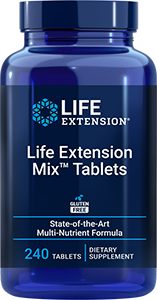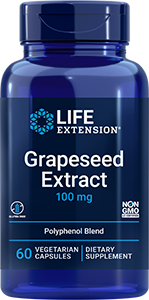 | May 8, 2009 | White tea fights fat | | In an article published online on May 1, 2009 in the journal Nutrition & Metabolism, researchers at Beiersdorf AG in Germany revealed that an extract of white tea helped prevent the formation of mature adipose (fat) cells in culture, as well as reduced the fat content of these cells, both of which could help reduce body fat. Marc Winnefeld and his associates administered varying concentrations of a solution containing 3 percent white tea to cultures of human preadipocytes, which differentiate into fat cells in a process known as adipogenesis. Additional cell cultures were incubated in control solutions. Treatment with white tea was shown to reduce fat incorporation during new adipocyte formation and reduce adipogenesis. Cell viability was not affected. In an additional experiment using mature adipocytes, mobilization of fat occurred in cells treated with white tea. "The extract solution induced a decrease in the expression of genes associated with the growth of new fat cells, while also prompting existing adipocytes to break down the fat they contain," Dr Winnefeld explained. White tea consists of the buds and first leaves of Camilla sinensis, the plant from which green tea leaves are derived. The researchers believe that the polyphenol epigallocatechin-3-gallate (EGCG), along with the methylxanthines caffeine and theobromine that are present in high amounts in white tea, are responsible for the effects observed in the current study. "In the industrialized countries, the rising incidence of obesity-associated disorders including cardiovascular diseases and diabetes constitutes a growing problem," Dr Winnefeld observed. "We've shown that white tea may be an ideal natural source of slimming substances." "Our data demonstrate that white tea extract solution effectively inhibits adipogenesis and stimulates lipolysis activity," the authors conclude. "This plant extract is, therefore, an ideal natural source to modulate the adipocyte life cycle at different stages and to induce anti-obesity effects." | |  |  | | The National Institutes of Health (NIH) estimate that more than half the adult population of the United States is overweight (defined as a body mass index [BMI] of 25 to 30). A significant number of these people are obese (defined as a BMI greater than 30). The obesity epidemic is even beginning to affect children, whose obesity rates have doubled in the past two decades (NIH 2005). And instead of declining, obesity rates are rising, along with the frequency of conditions that are closely associated with obesity, such as type 2 diabetes and metabolic syndrome. Green tea and green tea extract have shown an ability to increase metabolic rate. - A study in mice found that the primary polyphenol found in green tea (epigallocatechin gallate, or EGCG) decreased diet-induced obesity by decreasing energy absorption and increasing fat burning (Klaus et al 2005).
- Another study in mice evaluated the effects of caffeine, polyphenols, and L-theanine, the three major components of green tea. Additive benefits were found from green tea polyphenols, caffeine, and theanine on fat accumulation (Zheng et al 2004). Furthermore, another study showed that feeding 4 percent green tea powder to mice resulted in weight loss as well as lower concentrations of total cholesterol in the liver, triglycerides in serum and liver, and fatty acids in serum (Sayama et al 2000).
- A well-known study examined whether or not green tea extract, rich in caffeine and polyphenols, could increase 24-hour energy expenditure and fat oxidation in humans. On separate occasions, subjects were randomly assigned to one of three treatments: green tea extract and caffeine (90 mg EGCG and 50 mg caffeine), caffeine (50 mg), and placebo, which were ingested at breakfast, lunch, and dinner. The results showed that treatment with the green tea extract (which included caffeine) resulted in a significant increase in metabolic rate, as evidenced by a significant increase in 24-hour energy expenditure (Dulloo et al 1999).
- An open-label trial demonstrated that after three months, green tea extract decreased body weight by 4.6 percent and waist circumference by 4.48 percent (Chantre et al 2002).
| The Prostate Cancer Research Institute (PCRI) mission is to improve the quality of men’s lives by supporting research and disseminating information that educates and empowers patients, families and the medical community. PCRI is pleased to announce the 11th major conference devoted to prostate cancer, planned and/or produced by members of The Prostate Cancer Research Institute. As in the past, this conference will provide insight for patients, caregivers and medical professionals. Moderated by the highly regarded Dr. Mark Moyad and Dr. Mark Scholz, this year’s conference will again focus on quality of life Issues. Faculty will talk about important lifestyle and health issues including diet and dietary supplements, erectile dysfunction, hormone blockade side effects and other current issues relating to advanced disease. Exciting up-and-coming technology and research will also be presented.
| | |  | | Life Extension Update | | What's Hot | | Life Extension magazine | |


















